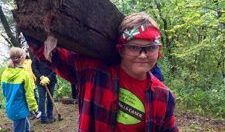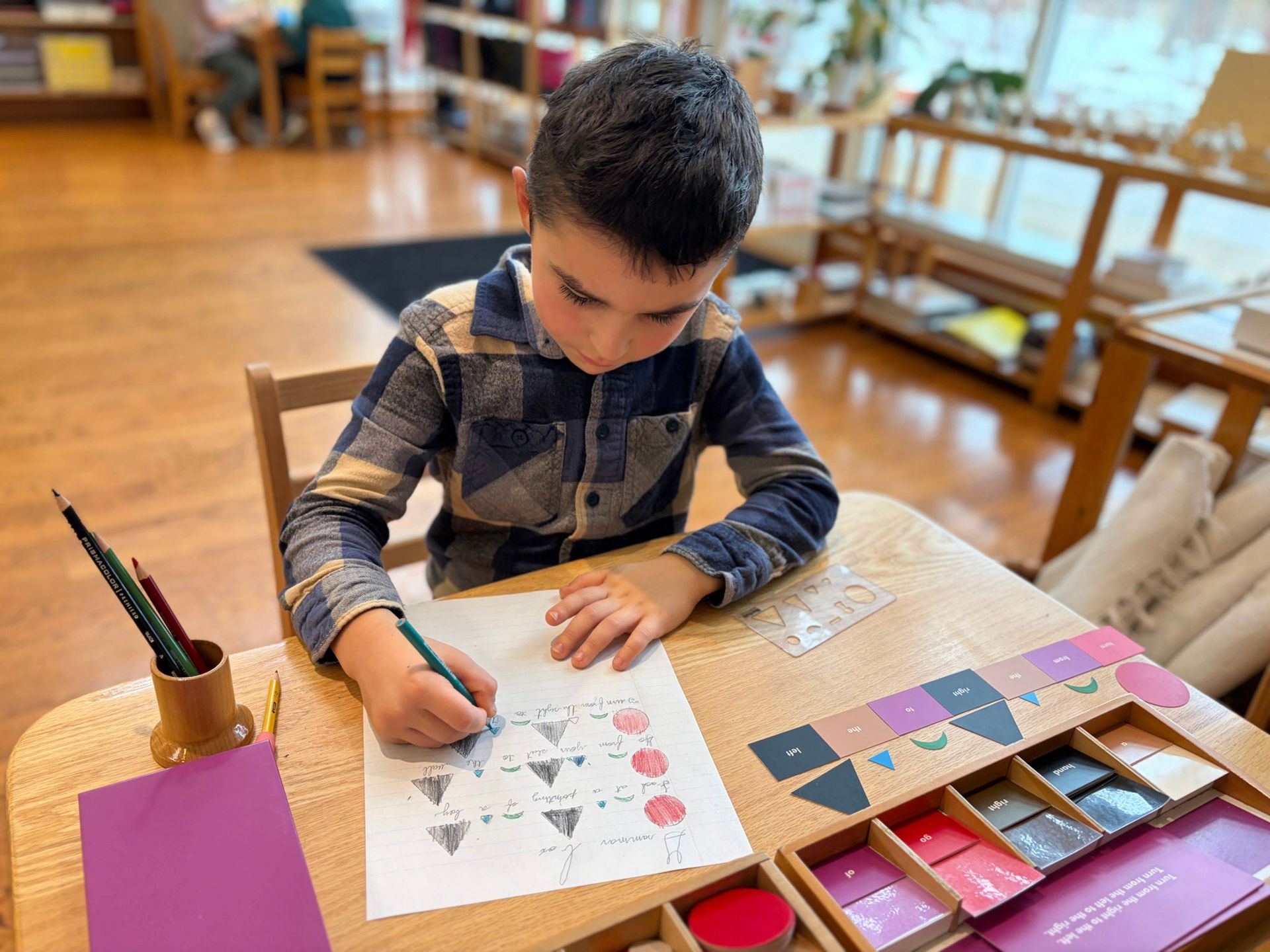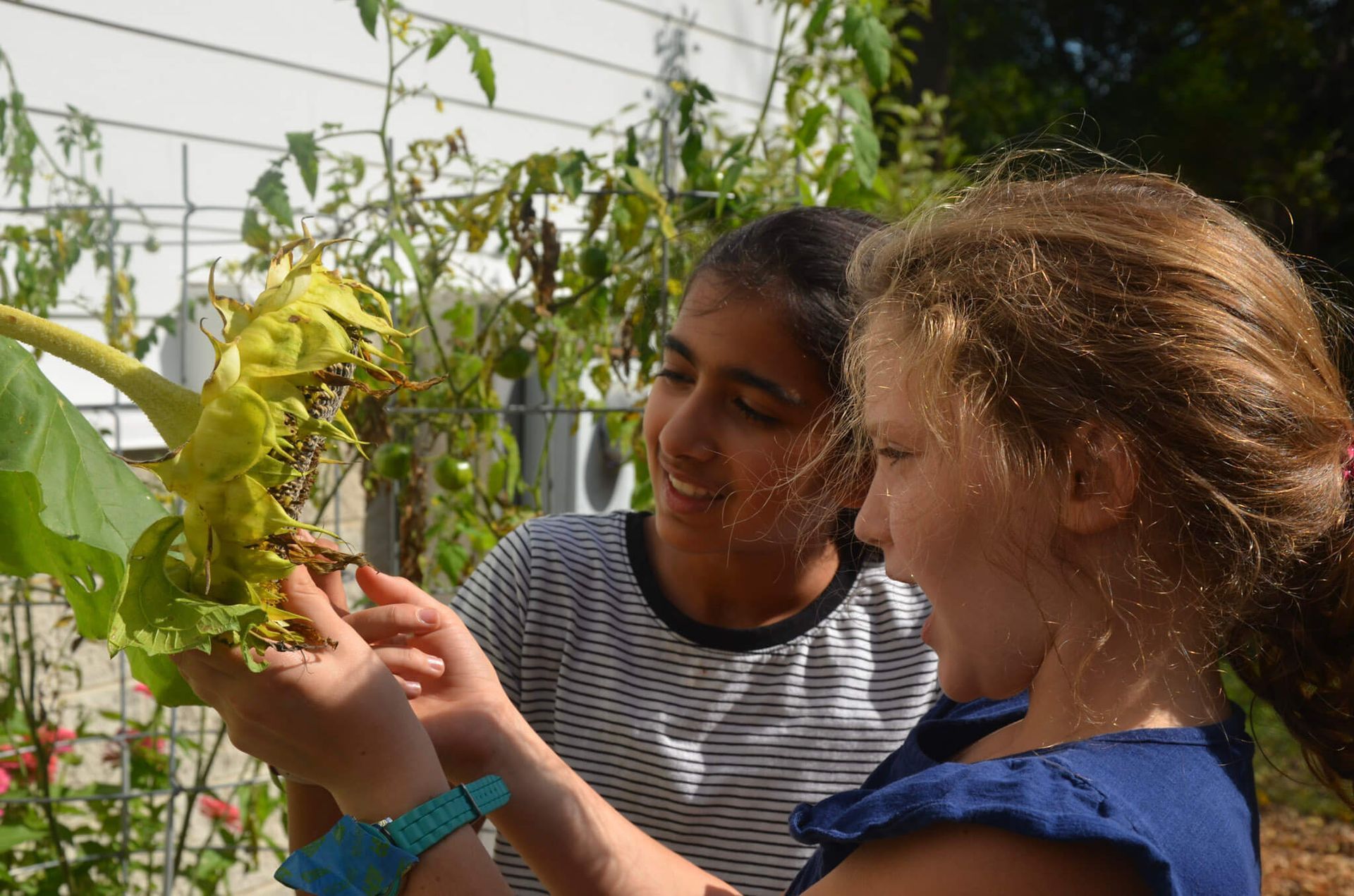
This article, "Adolescents Need Challenge," by Paula Lillard Preschlack appeared in The AMI Bulletin and describes the ways in which adolescents are capable of great growth when given the opportunity for meaningful work in service of their school, community, and family. At Forest Bluff School, our Secondary Level students are given many such opportunities. In addition to their rigorous academic pursuits and community outreach projects, students are tasked with planning, preparing for, and executing three major trips each year.
Our students built the amphitheater described by Mrs. Preschlack in this article for a YMCA camp in Minnesota. During this trip, the students slept outside in tents regardless of weather conditions and were responsible for preparing their own food around the campfire. Despite the hard physical labor and lack of creature comforts, our students return fresh-faced and jubilant and frequently describe these trips among their most formative experiences and cherished memories at Forest Bluff School.
Paula Lillard Preschlack has completed AMI certification at the Assistants to Infancy, Primary, and Elementary Levels and holds her M. Ed. from Loyola University in Maryland.
Read the full article in the AMI Bulletin:
Adolescents Need Challenge
More information about our Secondary Level program:
Academic Programs: Secondary Level
Community Testimonials (includes several letters describing our Secondary Level students, including one from the director of YMCA Camp St. Croix in Minnesota)


